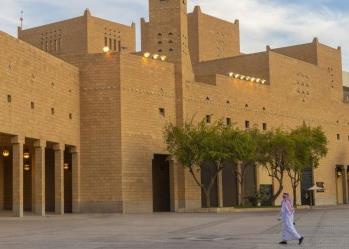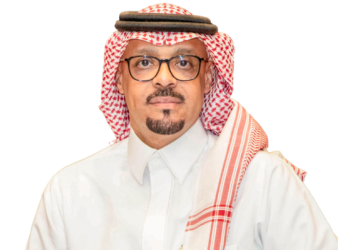
The Middle Easts emergence as a global trade hub bodes well for US contractor Bechtel, which is looking to establish itself more firmly in the region
Bechtel has enjoyed a good 2013 in the Middle East. On 26 July, a contracting consortium led by the firm signed a $9.45bn contract to build lines 1 and 2 of the Riyadh Metro. The award is one of the largest construction deals ever granted in the region and reaffirms the US-based construction giants position as one of the most active and influential companies working in the Middle East.
The Riyadh metro award follows other significant orders for design and feasibility work for a new petrochemicals complex in Qatar and an alumina refinery in Abu Dhabi. Both these projects put Bechtel in a good position for securing more work in the future.
Taking on risks
The Riyadh metro deal is the largest contract awarded in the region this year, demonstrating that Bechtel is still prepared to work as a contractor taking on risk, rather than a project manager working for a fee. It is also part of the firms constant challenge of maintaining an order book that gives it exposure to geographic markets and industry sectors that offer exciting opportunities, while avoiding the boom-and-bust cycles that are so often the downfall of construction companies.
The Middle East has been a steady and important part of our global business for many years
It is kind of like a mutual fund, says David Welch, Bechtels president for Europe, Africa and the Middle East. If you have several different kinds of stock in several different places, then not everything will go spectacularly well, but if you are the sole shareholder in Facebook in the first years after its IPO [initial public offering], then you are probably looking at your portfolio as performing very well. So what we want is a business that is a mix geographically and by type of contract. Since we dont have a publicly traded balance sheet to fall back on, that is critically important to Bechtel.
The Middle East has been an important market for Bechtel for a long time. In 1943, the contractor secured two deals. The first was awarded by Bahrain Petroleum Company (Bapco) to double the capacity of the Bahrain refinery to 65,000 barrels a day and build a fluid catalytic cracker to produce 100-octane aviation fuel. The second was granted by Saudi Aramco, then called Arabian American Oil Company, to replace a small refinery at Ras Tanura. Since then, Bechtel has worked on some of the biggest schemes ever delivered in the region, including the ongoing Jubail Industrial City in Saudi Arabia. The city began to be built in the mid-1970s and is now home to more than 100,000 people and accounts for more than 7 per cent of the kingdoms gross domestic product.
The Middle East has been a steady and important part of our global business for many years, says Welch. That said, it has gone through, like everywhere else, the financial crisis and the ensuing recession. Then there is the politics of the past two and a half years that have been a bit tumultuous. So, what we have done is focus on how we address the market in doing the things we do and the things we think we can succeed at, while at the same time balancing all these risks.
For the long term, Welch is optimistic about Bechtels future prospects, as the region has become an important hub for global trade, requiring the construction of world-class airports, ports and railways.
Trade patterns
The patterns of global trade and commercial interaction have changed dramatically in the past year and will change even more in the future, says Welch. Last year was the first time China imported as much oil as the US and we all know it has been very active in Africa, and how to do you get to Africa from China? So, you have two-way trade here now. There is lots of investment in airports; Qatar and the UAE will occupy commanding positions in the global aviation industry in the coming years, due to their tremendous geographical advantage.
Bechtel is actively working to help develop the regions aviation sector. It is the engineering, procurement, and construction management (EPCM) contractor for Hamad International airport in Qatar, and in Oman, it is leading the consortium building Muscat International airport. The company is also working on some of the Middle Easts largest port and rail projects. It is close to finishing its role as programme manager for Khalifa Port in Abu Dhabi, and is leading the consortium tasked with building two lines of the Riyadh Metro.
We [are working on] only a few schemes in [the power] sector and I would like to see more
Despite these notable successes, Welch still says there are areas for improvement. There are areas in which we can and should perform better, says Welch. Electricity would be a good example, as we have only a few schemes in that sector and I would like to see more. I think the [regional] market for power is going to grow exponentially.
Bechtel did have a long-running involvement in Egypts power sector until 2012, when it decided to divest from Power Generation Engineering & Services Company (Pgesco). The multi-service firm is responsible for tendering contracts for new power projects in Egypt and was incorporated in 1993, with the Electricity & Energy Ministry holding a 40 per cent stake, Bechtel 40 per cent and the local Commercial International Bank having 20 per cent.
We had a joint venture in Pgesco, but we sold our shares, says Welch. That was done for a commercial reason not a political one. We are still involved in Egypt and with Pgesco. But now, the market in Egypt is [geared towards] PPPs [public-private partnerships] and that is also the case elsewhere and we would like to craft an entry into that.
Bechtels preferred role for working on independent power schemes and independent water and power projects is as a contractor working for a developer.
Renewables focus
Another area of power generation that could become a significant sector for contractors such as Bechtel is renewables. Governments across the region have begun developing solar power plants and as confidence in the technology grows, most expect it to become a significant, although not dominant, market in the future.
We have been successful in the US on the [renewables front], but have not yet taken it outside our borders, says Welch. Bechtel has built the largest commercial solar facility in America. I would guess that even in this hydrocarbons-rich area, you will see more investment in renewables, so that is a possible entry too.
Another alternative energy source is nuclear power. In 2010, the contractor was appointed by a consortium led by Korea Electric Power Corporation (Kepco) to provide design and project management support services for the regions first commercial Nuclear Power Plant at Baraka in the western region of Abu Dhabi.
Other nuclear schemes are planned elsewhere in the Middle East, notably in Jordan and Saudi Arabia. Jordan is close to appointing a Russian group for its first nuclear power plant, while in Saudi Arabia, there have been early talks between contractors and developers.
They are talking about it [in Saudi Arabia], says Welch. I have had quite a few meetings with them on this and there are opportunities. We believe we can offer qualitatively superior support.
While further projects are planned around the world, Welch says the popularity of nuclear power could wane in the coming years. Our thinking on nuclear right now is that new build is going to be challenging as gas prices decline in some markets, particularly the US, he says.
One market niche Bechtel has identified is small-scale nuclear facilities. In 2010, the firm formed an alliance with the US Babcock & Wilcox Nuclear Energy to develop and deliver smaller 125MW nuclear power plants. Depending on regulatory approval, the two companies hope to deploy the first facility in 2020.
This is a very exciting technology and since it is a much more capital investment, it is potentially more interesting to utilities than the larger nuclear model, says Welch. [Smaller plants] are also environmentally easier to site and have the option of not needing water for cooling, so you can see those three things capital cost, site and the actual technology might be attractive to some clients in this region.
As the Middle East becomes a more important market, Bechtel has stepped up investment. I have been leading the effort to establish us in the region more effectively and I have had a lot of support from our chief executive officer and president, Bill Dudley, and the various people that head Bechtels business lines, says Welch. I like the Middle East; I worked out here back when I was in government and I am now working for a company that has been here for longer than almost any US firm and certainly any US contractor, so it is right to make these investments.
To support its activities in the region, Bechtel has opened two offices in Dubai this year. The first is a global centre of engineering excellence that will initially focus on rail and marine engineering schemes, and the second is a regional office dealing with its mining and metals business.
With stronger links to the region, Bechtel is also better placed to meet new localisation polices that require firms such as itself to use more local products and services and create more jobs for nationals. There is a great deal of political pressure, particularly in the GCC countries, to generate economic growth and jobs, so local content rules are becoming more complex and people have very high expectations, but the market cant deliver those, says Welch.
Localisation challenge
Creating jobs is particularly difficult for the construction industry, which operates on notoriously tight margins, leaving little scope for any additional costs.
The competition has become tougher at a time when procurement processes, particularly public-funded ones, have become imbalanced between price and quality, says Welch. So, governments, largely because of regulations they impose, are having to take the bottom price, whatever that happens to be, even though they may have some preference for technical reasons to go with a different competitor. That is one risk. I think that is going to take some time to work through to be honest. The clients concerned have to go through a few bad experiences before they realise the model needs to be adjusted.
In the meantime, Bechtel will look to maintain its long-standing presence in the region by working on projects that are secured for a reasonable price. We will not [take part in practices such as] buying a job and claiming against the client afterwards, says Welch. That seems to be the most unsuccessful way to start a relationship.
Career history
2005-08 US assistant secretary of state for Near Eastern affairs
2001-05 US ambassador to Egypt
1998-2001 Worked as US assistant secretary of state for international organisation affairs
1989-91 Member of the National Security Council staff at the White House
1975 Graduated from Georgetown University School of Foreign Service
1973-74 Studied at the London School of Economics
You might also like...

Morocco seeks firms for 400MW wind schemes
26 April 2024

Countries sign Iraq to Europe road agreement
26 April 2024

Jubail 4 and 6 bidders get more time
26 April 2024

Amiral cogen eyes financial close
26 April 2024
A MEED Subscription...
Subscribe or upgrade your current MEED.com package to support your strategic planning with the MENA region’s best source of business information. Proceed to our online shop below to find out more about the features in each package.








